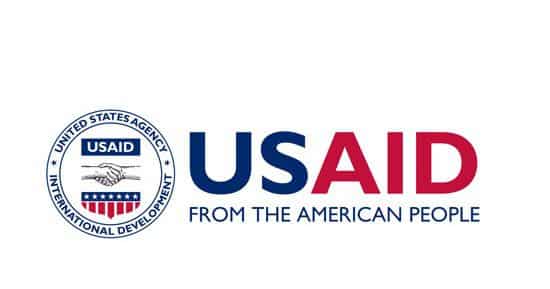WASHINGTON, USA – The U.S. Agency for International Development’s (USAID) Gender Equality and Women’s Empowerment Hub announced $5 million in funding for awards and technical assistance to nine winners of the MujerProspera (WomanProsper) Challenge, a regional challenge to advance gender equality in El Salvador, Guatemala, and Honduras through women’s economic security, employment, and entrepreneurship.
The challenge advances the Biden-Harris Administration’s strategy to address the root causes of irregular migration from Central America. It was first announced by USAID Administrator Samantha Power during her trip to El Salvador in June 2021.
This event featured keynote remarks from USAID Administrator Samantha Power, who announced the winners, and a dynamic panel discussion in which select awardees discussed their approach to innovation.
The winning organizations bring innovative and impactful solutions to promote women’s decision-making, safety, and access to power, resources, fair and stable long-term income, and labor protections in the workplace. Seven of the nine winners are local partners, three are regional efforts, and all will leverage private sector support to advance women’s economic security and address harmful gender norms, enabling safe work environments. Their intersectional approaches will root out systemic barriers and discrimination, addressing the needs of women and girls, particularly those from marginalized and underserved populations.
- In El Salvador, Guatemala, and Honduras, the Zamorano Pan-American Agricultural School (link is external), will work with more than 1,500 women farmers and producers, as well as over 30 private sector organizations, to enhance women’s agency in the workplace. Building on its current activities in Honduras, Zamorano will expand efforts in El Salvador and Guatemala to address gender norms that act as a barrier to women’s engagement in agriculture.
- In El Salvador, Guatemala, and Honduras, the Business Foundation for Social Action (link is external) will work with 400 women to strengthen their agency and entrepreneurial skills, supporting 300 small and mid-sized businesses and 60 companies to promote a safe work environment and ensure women’s economic security.
- In Guatemala and Honduras, the Cooperative for Assistance and Relief Everywhere (link is external) will work with financial partner Cargill (link is external) to support 500 women food producers in peri-urban and urban areas of Cortes and Comayagua in Honduras, and Chimaltanango and Quetzaltenango in Guatemala, to increase their economic security through skill development, market linkages, and business networks in fish, meat, poultry, dairy, and vegetable production.
- In Guatemala, the Tikonel Association of Productive Development and Services (link is external) will strengthen the ability of Indigenous women producers of oyster mushrooms to increase their yields through skill-building, market connection, and value chain opportunities. The association will work with the Municipal Office of Food and Safety as well as local schools in 12 communities to implement this project.
- In Guatemala, the local office of Justice Education Society of British Columbia (link is external) will collaborate with the Survivors Foundation (link is external) to build on an evidence-based approach to economic development for 300 women survivors of gender-based violence. The approach combines psychosocial support, technical skill development, and access to public legal education and information.
- In Guatemala, New Sun Road (link is external) will collaborate with the Ixtatán Foundation (link is external)’s Guatemalan office to provide up to 1,000 Indigenous rural women in the western highland departments of Alta Verapaz and Huehuetenango with expanded access to internet-enabled and solar-powered community centers. They will support women entrepreneurs and their families through training in digital literacy, financial management, problem-solving, and business.
- In El Salvador, the women-led Many More Association (link is external) will work to close the digital literacy gap, enhancing economic opportunities and reducing the likelihood of migration for young women between the ages of 12 and 25. In partnership with the Salvador Chamber of Information and Communications Technologies and the Pan American Development Foundation (link is external), they will implement a comprehensive model for skill development and job creation in the high-demand information technology sector.
- In Honduras, the COHONDUCAFÉ Foundation (link is external) will work with 30 women coffee growers across three municipalities to establish a new brand of coffee, using specialized knowledge of the local market supply chain, coffee processing, and commercialization to ensure stable income.
- In Honduras, the Grameen Foundation (link is external) will engage 200 food insecure women and their partners in Indigenous and Afro-descendent communities to shift gender norms and power dynamics through a proven approach of engaging spouses and partners to champion women’s business models, growth, and resilience. Through intrahousehold dialogues, this effort will enhance women’s access to credit and financial services, promoting more equitable sharing of household responsibilities.
USAID challenges use open competition to incentivize local and global entrepreneurs, academics, civil society, and other passionate problem solvers to address a well-defined problem, pilot and test innovative approaches and scale the most promising solutions. To learn more about the challenge and its winners, visit the MujerProspera Challenge webpage.















